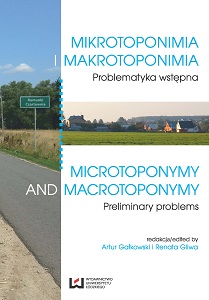
Expressivity of orohodonyms
Expresívnosť orohodoným
Keywords: orohodonyms (climbing-path names);microoronyms;inherent;adherent and contextual onymic expressivity
More...
Keywords: orohodonyms (climbing-path names);microoronyms;inherent;adherent and contextual onymic expressivity
More...
Keywords: toponymy;lexicography;semantics;micro- and macrostructure of a dictionary;metaphor;metonymy
More...
Keywords: microtoponyms;macrotoponyms;toponyms;toponomastics;Ernst Eichler
More...
Keywords: Sławomir Gala;dialectologist;onomast
More...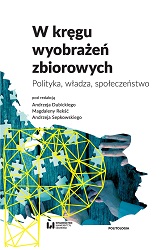
Keywords: collective representations;collective memory;myths;stereotypes;collective identity
The aim of the text is to define and examine the concept of collective representations which was introduced by Émile Durkheim many years ago, but since that not many scholars have brightly analysed it. According to the author, collective representations can be described as the system of following elements: myths and stereotypes, collective memory, collective identity, axio-normative system (including culture and religion) and collective emotions. All the elements mentioned aboveThe aim of the text is to define and examine the concept of collective representations which was introduced by Émile Durkheim many years ago, but since that not many scholars have brightly analysed it. According to the author, collective representations can be described as the system of following elements: myths and stereotypes, collective memory, collective identity, axio-normative system (including culture and religion) and collective emotions. All the elements mentioned above are related to each other, so one can say that the system constantly works. That is why collective representations are not constant, they regularly evolve according to political atmosphere and ideological context.
More...
Keywords: consumerism;self-realization;demography;crisis of the West;civilization;enlightenment;anthropology
The western societies are shrinking and getting older. These demographical processes have roots in civilizational solutions explored and imposed by the revolutionaries of Enlightenment. The cultural patterns created by the 18th century philosophers are still and continuously actual. The set of modern and postmodern ideas including consumerism, self-realization and salvation during mortal life are the core reasons of demographical problems of western societies. People aren’t eager to have families and children. They perceive the traditional way of life as a personal sacrifice. They feel a strong need to devote themselves to their own desires and joys. People live their lives as they were to be the last generation of their nations and seem not to be worried or even concerned by that fact.
More...
Keywords: political thought;political parties;Law and Justice party;international relations
The article is the analysis of Law and Justice party, perceived as neorealistic (as opposed to neoliberalism). The argument between neorealists– neoliberals implied polarisation, concentration, political mobilisation in Poland. The adversary of Law and Justice is Civic Platform – a neoliberal party. In theoretical background the subject of the competition is realism. The choice of the means to achieve goals is based on historic, cultural and geopolitical analysis. For Civic Platform realism is based on the adjustment of means for the political disposal. In the article four dimensions were analysed: cognitive, conceptual, axiological and programmatic. One of the most important consequence of realism for Law and Justice party is hard politics visible in international affairs.
More...
Keywords: human origins;philosophy;abstract art;values;human subjectivity
The article deals with one of the most important questions in the history of humanity: why we are here. The author provides a wide overview of the evolution of human thought around the issue of our origins. We continuously have been asking ourselves the same question throughout our history, but it lead us to different conclusions. The essence of life is inseparably linked with the reason of our existence. The effect of which is visible not only in philosophy or sociology, but also in arts. While philosophy tries to describe this essence by thought, art tries to describe it by form and shape. While there is no philosophy without relation to the genesis of humanity, there is no art without emotions. This is why the humans are so curious to discover the past both by thought and form. We simply try to answer this one particular prehistoric question.
More...
Keywords: Edward Gierek;1970s;PRL;historiography
In article I am trying to summarise polish historiography about Gierek’s decade. Since the end of this period only 35 years have passed, but even now we can define some plots on that field. Historical literature upon that thing can be divided into four periods. In some of them we can find more or less critical discourses. The paper help us figure out which was dominant in current period. In that way we can recapitulate how was seen „the decade of accelarated development” in polish historiography, was it a „paradise”, or opposite.
More...
Keywords: communist Poland;contemporary Poland;street names;symbols;cultural landscape
This paper discusses the subject of politically related street names which were introduced in Poland by the communist regime, as well as the attitude towards them in contemporary democracy. After World War II urban toponomy was widely used in Poland as a mean of ideological persuasion, commemorating persons, events and values related to the communism. The goal of such actions was to demonstrate communist domination and to shape social attitudes of obedience and acceptance of the existing order. During and after the democratic transition of 1989, street names related to the communism were massively removed, although many of them remained in the public sphere, especially if they survived the climax of symbolical decommunization of 1990. In this paper the most important aspects of the renaming process are discussed: political actors involved and relations between them (including recent intention of the central government to dominate this process, formerly belonging to the exclusive competence of the local authorities), arguments for and against streets renaming, most common trends regarding introducing new names, eventually controversies which arise in the process, especially concerning patrons whose relation with the communist ideology may be questioned. Additionally, results of a quantitative analysis are presented in order to examine the difference among various regions of Poland regarding tolerance towards still existing communist toponomy, which brings interesting results concerning former German lands, so called “Recovered Territories”, which seem to have incorporated the communist heritage into their identity in a much bigger degree than other parts of the country.
More...
Keywords: Fyodor Tyutchev;formula-myth;Russianhood;Russia;“soul”;“soul of the world”;vision;imperialness
According to the canonical, for the Russian cultural tradition and the communal consciousness of the Russians, poetic formula presented by Fyodor Tiutchev, Russia is – unlike all the other countries, inexplicable in the notions of profane knowledge – the sacred Reality. As Wladimir Soloviev appropriately recognized the nature of the accompanying conceptualization the world, it assumes, expresses and explains the understanding of Russianhood and Russia in terms of a “soul” and the “soul of the world.” In turn, according to the identification-diagnosis by Andrzej Walicki, we are dealing here with “Tyutchev’s imperial vision,” which, please note, confirms both the content articulated by the poet in the poem On the Taking of Warsaw as well as his apoetical political texts. In the theoretical perspective, co-created by both of these interpretative methods, it is worth looking into the mythical content and implications of the analysed vision of Russianhood and Russia as well as the mental-social basis, and the consequences, of its still lasting vitality.
More...
Keywords: Russian idea;Putin;Dostoevsky;Solzhenitsyn
It was Fedor Dostoevskii who introduced the category of “Russian idea” into ideological discussion. Today the category is again in its heyday in Russian nationalism and appears even in Vladimir Putin’s statements. Some believe that Putin puts Aleksandr Solzhenitsyn’s concept into practice. In my text I attempt to question this stance
More...
Keywords: Russia;Central Powers;revolution;peace;propaganda;World War I
The purpose of this article is to trace the ambiguous images of Russia which had been presented after October Revolution in propaganda of Central Powers. Because of the Bol-sheviks’ peace slogans this country suddenly became the most desired ally of Germany, Austria-Hungary and Bulgaria. The autor aims to answer the following questions: – Which narratives connected to Russia did dominate in German society in 1917–1918? – To which extent were they similar and in which different from the leading narratives in such countries as Austria-Hungary and Bulgaria? – What was the background of the mentioned narratives and images? The author distinguished two major motifs connected to the image of Russia as a kind of providential force: 1) of Russia-the-Saviour (as an exemplification of the myth of “Grandpa Ivan“), 2) of Russia-a-fighter-for-peace (as a continuation of the myth of Russian Revolution).
More...
Keywords: Lexicon of YU mythology;Yugoslavia;popular culture;communism;myths;symbols;memory;yugo-nostalgia
For some time now Poles seem to be increasingly more interested in the Yugoslav popular culture which has thus been gaining its own experts as well as lovers in Poland. It is undoubtedly associated with the development of studies in fields such as (Southern) Slavonic and Balkan Philology as well as with increasing historical, politological, ethnological and anthropological research into the past and present of the post-Slavic area, including cultural, social and political issues. Leksikon YU mitologije (The Lexicon of YU mythology), published in 2005 in Serbian (Belgrade) and distributed more widely in Croatia, is a unique work in the field of cataloging and recognizing phenomena of popular culture of Yugoslavia. This impressive book edited by Iris Adrić, Vladimir Arsenijević and Djordje Matić several years after the break-up of the Socialist Federative Republic of Yugoslavia (SFRY) is the result of work of many professional lexicographers and even a larger group of amateur lexicographers representing different nationalities. It is also the realisation of a design of Dubravka Ugrešić, Dejan Kršić and Ivan Molek dating back to 1989, a few years before the fall of SFRY. The thoughts on some of the content contained in lexicon is to provide not only an opportunity to look at the selected phenomena of popular Yugoslav culture in the communist period. It is also intended as a contribution to reflection and discussion on the relationship of these phenomena with the identity of the Yugoslavs over their current functioning, hence “life after life”), and finally on the determinants of the process of the creation of certain specific images of collective memory, among which one should mention “yugonostalgia”, which is one of the most important imperatives of participation of many authors of the lexicon
More...
Keywords: juche;juche society;Confucianism
The Juche ideology, despite political and economic aspects, has influenced socio-cultural aspect in North Korea. Kim Il Sung’s doctrine is an important factor that strongly unites state’s inhabitants. North Korean society, which can be called juche society, was formed on solid foundations that have historical and doctrinal conditions. Furthermore, juche’ function is to mobilize and integrate North Korean society. It is also an inspiration to community activity. It provides entity’s progress but under collective. Additionally, North Korean society shows thinking due to juche ideology. The purpose of this publication is to show juche as an important factor that influences and unites North Korean society
More...
Keywords: identification;regional identity;myth;collective memory;European identity
The article addresses the problem of shaping the centuries-long relationship between Polish people and Ukrainians from Galicia, and discusses the factors influencing the process of shaping the national identity of the inhabitants of Lvov. The publication underlines the historical and ethnic backgrounds influencing the people living in Lvov region and in Lvov itself. The article also refers to the issue of identifying Lvov residents as Europeans. The author of the article also highlighted obstacles preventing the creation of solid foundation between the inhabitants of Lvov to build a common regional identity despite centuries of co-existence. The destabilizing elements were primarily claims to the same territory. Despite the complicated history, there is one common feature of the Lvov residents which has been preserved – as the author of the article points out – namely, their European identity. This belief has risen to the rank of myth. The article has made a synthetic analysis of the mutual relationship between Polish people and Ukrainians from the 15th century up to the present day, taking into account the influence of elements of collective memory. The current relations between the two nations are relatively well formed. After joining the EU, Poland acts as a Ukrainian supporter, regularly defending its interests. This, as well as the Orange Revolution, Euro 2012 and the Revolution of Dignity contributed to the untightened relations between these two nations. However, despite these positive actions in common relations, the attitude of a decisive part of the intellectual elite of modern Lvov residents is more and more influenced by the mythology of the multiculturalism of this city and its membership “ever since” to Europe, with the dominant Ukrainian language, and simultaneous marginalization of thousand years of belonging to the Polish state, which in effect creates a fake image of the city and its inhabitants
More...
Keywords: covenant;Israel;Yahweh;tribal union;ethics;rationalization
In Max Weber’s interpretation, the covenant was a political instrument of the Israelites. In Weber’s view, the original goal of the Sinai covenant was the political goal – strengthening the defense force of scattered Israeli tribes, and within the tribes it gave the durability of socio-economic relations between social groups, mainly between shepherds of small herds and a farmers or a city military patriciate owning land. The covenant had a defensive character with regard to the tribal union and socio-political character in terms of intertribal relations. Israel was developing and gaining its specific character as a cult and military union based on free shepherds and farmers, uniting during the wars against enemies. In the later age of prophets, the covenant became a catalyst for the process of rationalizing and ethicizing the Jewish religion. This process was, therefore, a consequence of the development of the political consciousness of the Israelites, expressed in the form of the covenant with Yahweh
More...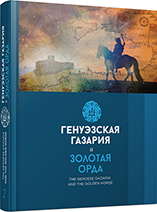
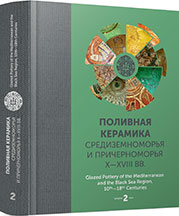
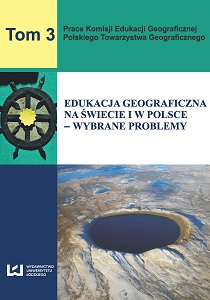
Keywords: geography education;Hesse;interests;geographical topics and methods
The article is about the situation of Geography Education in the educational system of the federal State Hessen. The author describes the structure of educational institution swhere pupils and students undergo geographical education. Another focus of the paper is put on the themes the students learn and the number of lessons they are taught in geography in comparison to other subjects. The article answers several vital questions such as: Which parts of the geography education in school are mandatory for the pupils and when do they take the decision to choose geography or other subjects? Which geographical subjects at the University can young students select? Lastly the author presents an overview of pupils` preferences concerning geographical themes and teaching methods. Thus the paper outlines the didactical principles of geography education in Hessen.
More...